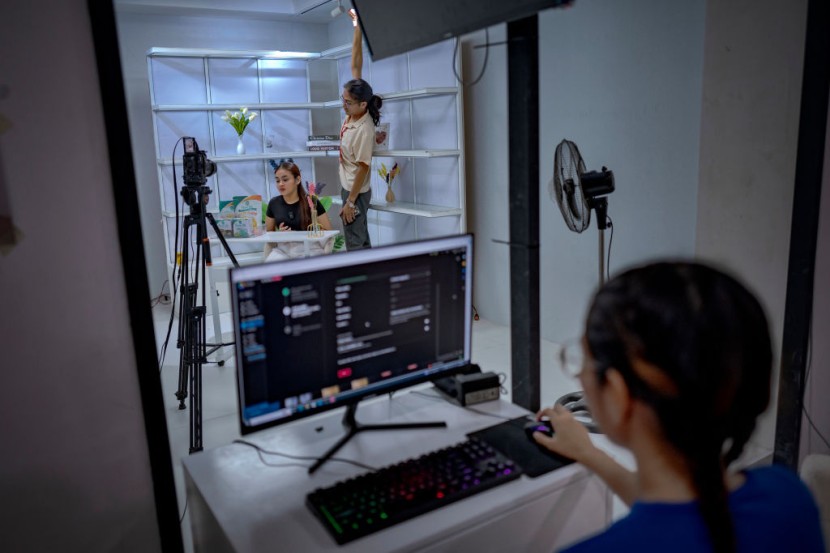
TikTok has the ability to compile data on its users' views of divisive social issues such as abortion, gun control and religion, making it a potential threat to order in the U.S via secretive content manipulation, the U.S. Justice Department alleged in court papers filed late Friday.
TikTok employees have used an internal messaging system called Lark to exchange sensitive information about American users that wound up stored on computer servers in China, according to gverment lawyers, NPR reported.
"The serious national-security threat posed by TikTok is real," the Justice Department filing said, according to Reuters. "TikTok provides the Chinese government the means to undermine U.S. national security in two principal ways: data collection and covert content manipulation."
The claims were made in a request to dismiss lawsuits filed by TikTok, Chinese parent company ByteDance and a group of TikTok creators seeking to block a law signed in April by President Joe Biden.
The measure requires ByteDance to sell TikTok's American assets by Jan. 19 or face a ban in the U.S.
TikTok is one of the world's most popular social media sites, especially among younger people, and is used by about 170 million Americans.
In a statement TikTok repeated its denials that it shared data on U.S. users with China, or manipulated what is seen on the website.
"The government has never put forth proof of its claims, including when Congress passed this unconstitutional law. Today, once again, the government is taking this unprecedented step while hiding behind secret information," the company said in a post on X.
In its filing, the Justice Department said China's "long-term geopolitical strategy involves developing and pre-positioning assets that it can deploy at opportune moments."
In a separate declaration, prosecutors acknowledged they had no evidence that the Chinese government had gained access to American user data, but said the risk was too great to ignore.
"The United States is not required to wait until its foreign adversary takes specific detrimental actions before responding to such a threat," they wrote.
Oral arguments before the U.S. Court of Appeals for the District of Columbia Circuit are scheduled for Sept. 16, less than two months before the presidential election in November.
Both Republican nominee former President Donald Trump, and Vice President Kamala Harris, the presumptive Democratic nominee, have TikTok accounts, with Harris launching hers on Thursday after posts about her there went viral.
Trump tried to ban TikTok on national security grounds while in office but reversed course this year, telling CNBC that banning it would "make Facebook bigger, and I consider Facebook to be an enemy of the people."
Various news outlets have suggested Trump's flip-flop was prompted by Republican megadonor Jeffrey Yass, whose investment company reportedly owns a 15% stake in ByteDance that was worth more than $30 billion last month.
A Harris campaign spokesperson told Fox Business on Friday that Harris didn't want to ban TikTok but would "like to see a change in ownership."








